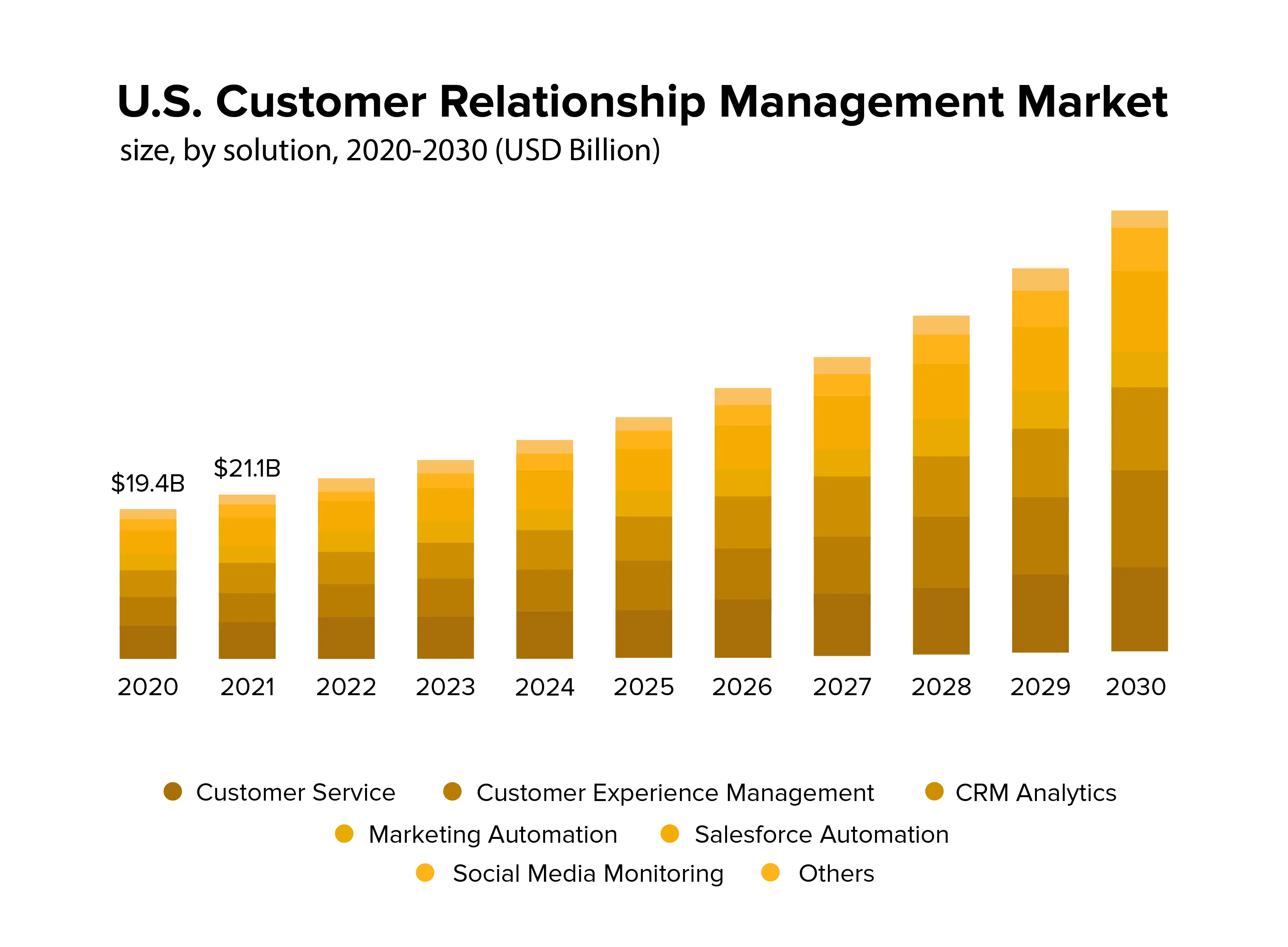Creating your own CRM is one of the most important decisions you’ll ever make in your business. Why? Because it’s the key to unlocking the power of data to drive better decision making, increase sales, provide accurate insights, have better customer interactions, and more.
When you create your own CRM, you are taking on a huge responsibility. Before you even think of designing, creating, or launching your own customer relationship management (CRM) system, there are a few things you need to keep in mind like what features you need, how user-friendly the interface (UI) needs to be, and what kind of design you want. Once you have a good understanding of what you need, the rest will fall into place.
If you are not sure where to start then you have landed at the right place. In this blogpost, we will provide a step-by-step guide on how to build a custom CRM system, its features, benefits, and costs. We will also highlight some of the key statistics to help you decide further.
So, let’s get started!
Key CRM Statistics you need to know
If you’re like any other business in the market, your CRM (customer relationship management) system is one of your most important tools. With a CRM system in place, you’ll be able to better understand your customers, keep track of your sales and marketing activity, and make better decisions based on accurate data.
The CRM software market is currently growing at an exponential rate. Have a look at the below statistics for a complete overview of the market and growing importance of CRM systems for businesses.
- As per a report on the State of Sales by LinkedIn, 64% of companies consider CRM to be really impactful for their business.
- According to Nucleus Research, productivity with improved data visibility is the main benefit of CRM technology
- As per the latest research by Salesforce, CRM software can increase sales by up to 29% while improving sales productivity and accuracy.
- As per a study conducted by Capterra, customer satisfaction and customer retention were improved when businesses used CRM systems.
- According to a research by Grandviewresearch, the global CRM market size was estimated at approx. USD 52.4 billion in 2021 and is expected to reach USD 57.9 billion in 2022.

The above statistics clearly indicate why having a CRM system is a must for businesses. However, when it comes to building a CRM system, there are two approaches – you can either use a market ready CRM system, or can create a custom CRM system from scratch. Here are the key differences between a custom-made and a market-ready CRM to help you make an informed decision.
Custom CRM System Vs Market-Ready Solution
It is important to decide which type of CRM will best meet your needs before building it, as the wrong one can lead to frustration and wasted time.
What is a custom CRM system? It is a tailor-made solution for your business, designed to streamline your operations and help you optimize your workflow.
On the other hand, a market-ready CRM is already set up and highly functional, and may include features that you do not need or want.
We will summarize so you get a clear idea of the differences.
| Custom CRM System | Market-Ready CRM System |
|---|---|
| Allows you to finalize the set of features required as per your business needs | Already has a standardized set of features with a limited scope of adding new ones as per your requirements |
| Designed specifically for your business | More generic and can be used by many businesses |
| More expensive to build as it requires more customization, features, time, and manpower | Cost-effective because of a standardized set of features |
| Need to train a customer support team to resolve the issues | Can use the available support if any issue arises |
| Free trial not available | Free trial available and then you can switch to upgrade |
While we have looked at the major differences between a market-ready and custom-made CRM system, let us now look at some of the key benefits of creating your own custom CRM system from scratch.
Benefits of having a custom CRM software
A CRM software is an essential tool that you can use to manage and track customer data. A well-developed CRM system allows you to better understand your customer base and identify and address any customer issues early on. By automating customer communication processes, a CRM system also helps you to reduce operational costs.
But why should you build your own custom CRM from scratch? Here are some reasons to consider.


